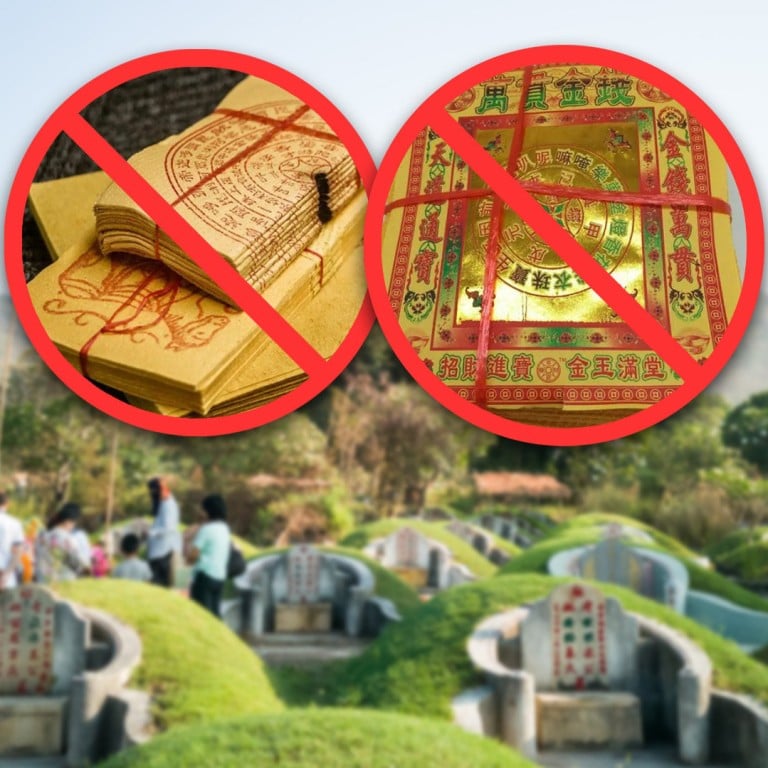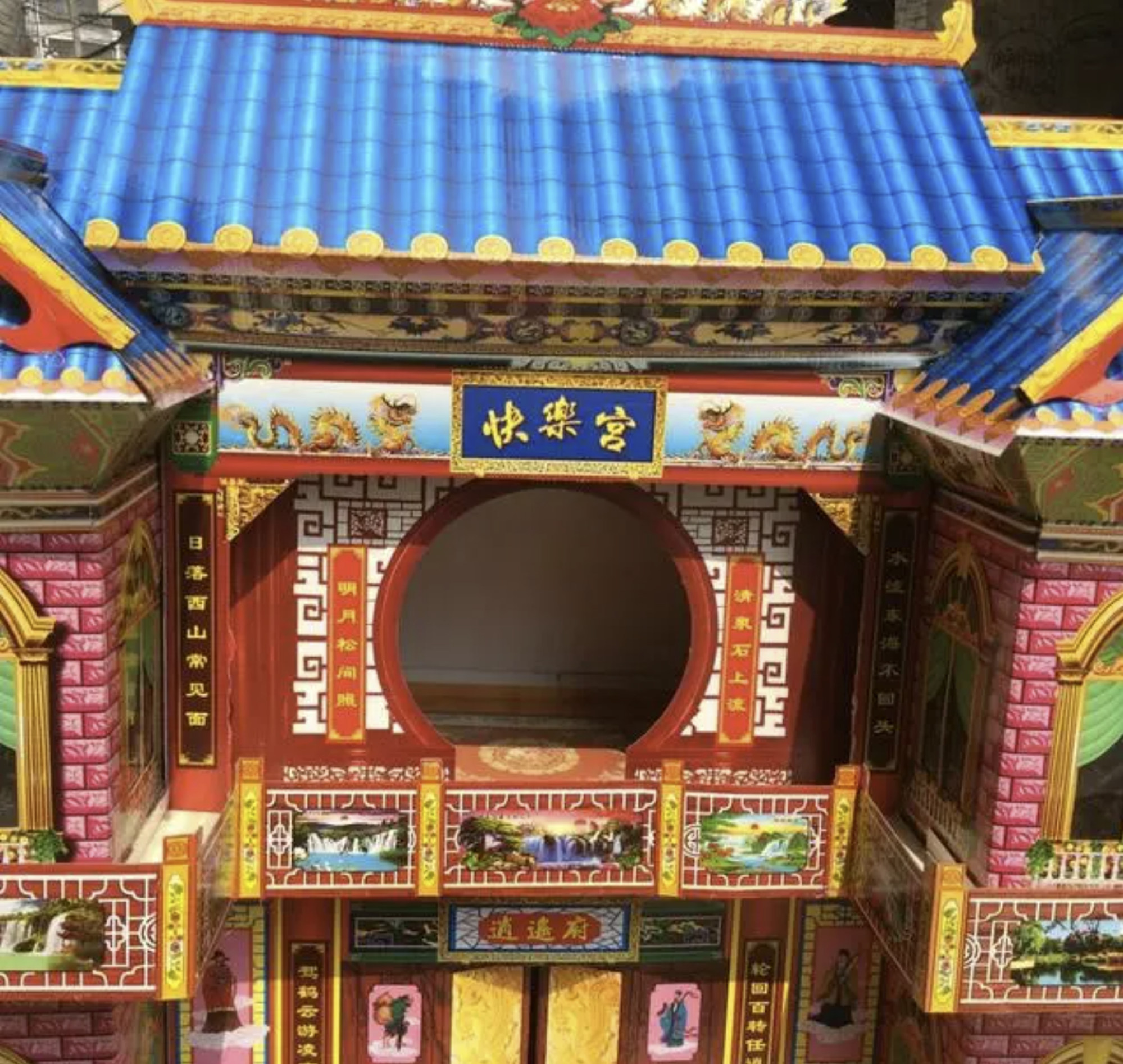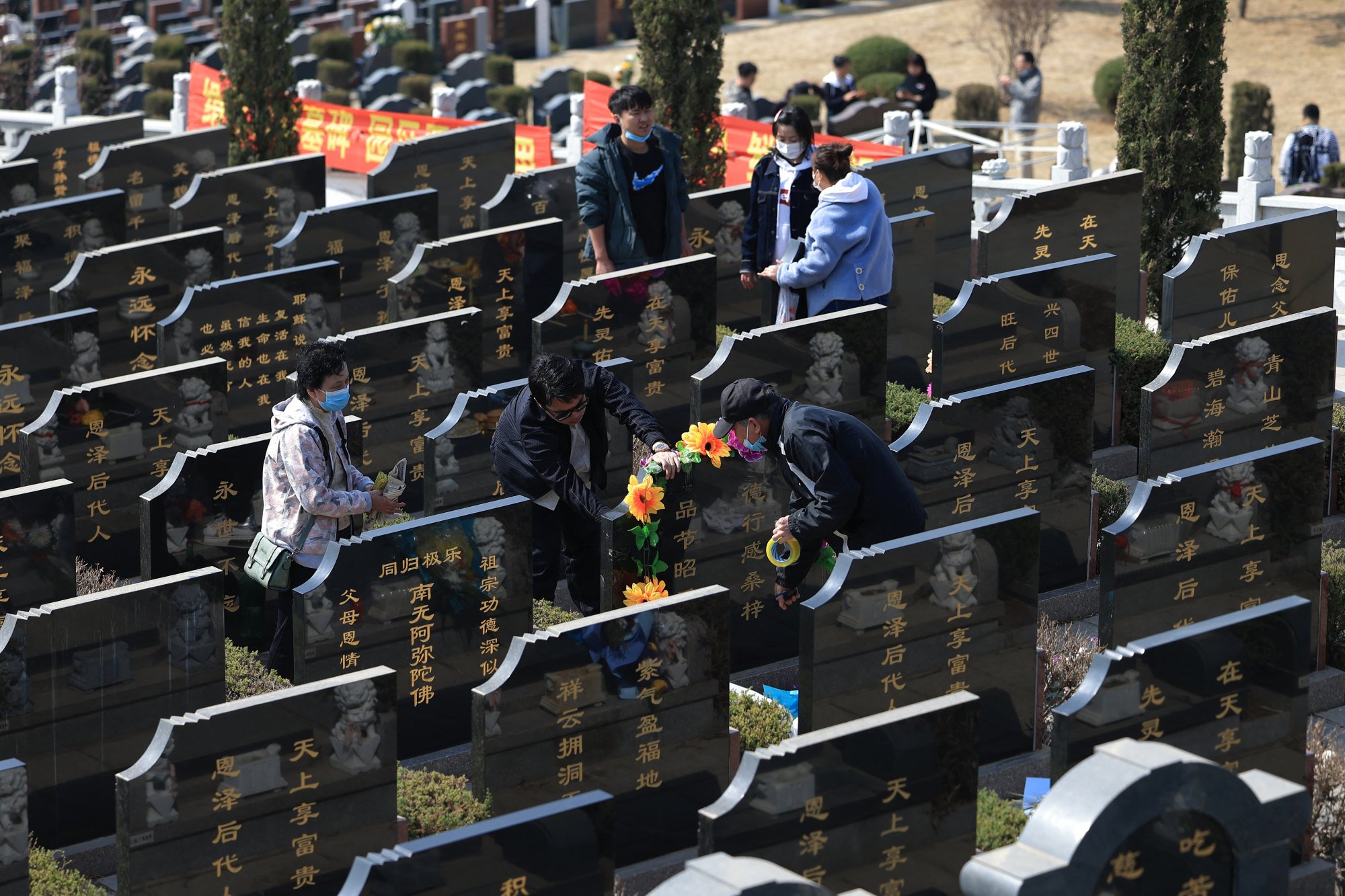
China city lambasted for banning burning of ‘hell money’ to commemorate ancestors during Ching Ming Festival
- Ritual sees burning paper miniatures of gold bars, cash, cars, houses
- Tradition shows respect to dead, ensures wealth in afterlife
A city in China that has banned the manufacture and sale of ghost money and other paper funeral products used to worship ancestors has been told the rule is “too straightforward and rude”.
Burning paper gifts for the dead, such as miniatures of gold bars, cars, houses, animals and even maids, is an important traditional ritual for Chinese people when they visit the graves of their ancestors.
As well as a way of paying respect, burning paper gifts is also believed to ensure that deceased loved ones will be wealthy in the afterlife.
Ahead of this year’s Ching Ming Festival, or Tomb Sweeping Festival, which falls on April 4, the authorities in Nantong, in the eastern coastal province of Jiangsu, have come under scrutiny after they outlawed the making or selling of paper offerings.

While branding the offerings a “symbol of feudal superstition”, the authorities said the main reason for the ban was to protect the environment and prevent fires, the news outlet, thecover.cn reported.
Anyone who violates the rule will have their products confiscated and be fined up to three times their income, the local civil affairs and market supervision authorities said on March 25.
The Nantong government said the public should commemorate their forefathers using “green and environmental means” such as giving flowers, planting trees and writing letters.
The order from the city has sparked an outpouring of criticism on mainland social media, with the state-run China National Radio (CNR) joining the discussion.
“Burning paper money for ancestors is not a feudal superstition, it is what Chinese people have done to mourn their ancestors for a very long time,” the media outlet said in an editorial on March 27.
“You can call on the public to adopt environmental ways, but simply banning people from burning paper money is too straightforward and rude.
“This management style is not practical and lacks human warmth. We suggest the authorities be prudent when making this order,” CNR said.
“We have noticed the reaction on the internet, and will research whether or not we need to change the rule,” an official from the Nantong municipal civil affairs authority told thecover.cn.

Nantong is not the only city in China to run counter to the long-held Ching Ming Festival practice.
In the past couple of years, other mainland cities including Beijing, Chongqing in southwestern China, Tianjin in the north, and Liaoyang of the northeastern Liaoning province, introduced similar rules.
“It’s not superstition. It’s our belief. It is a method of communication between us and our dead relatives,” said one person on Douyin.
“It’s a cultural tradition of China. We inherited this practice from our ancestors. I don’t support cancelling this custom,” another said.

